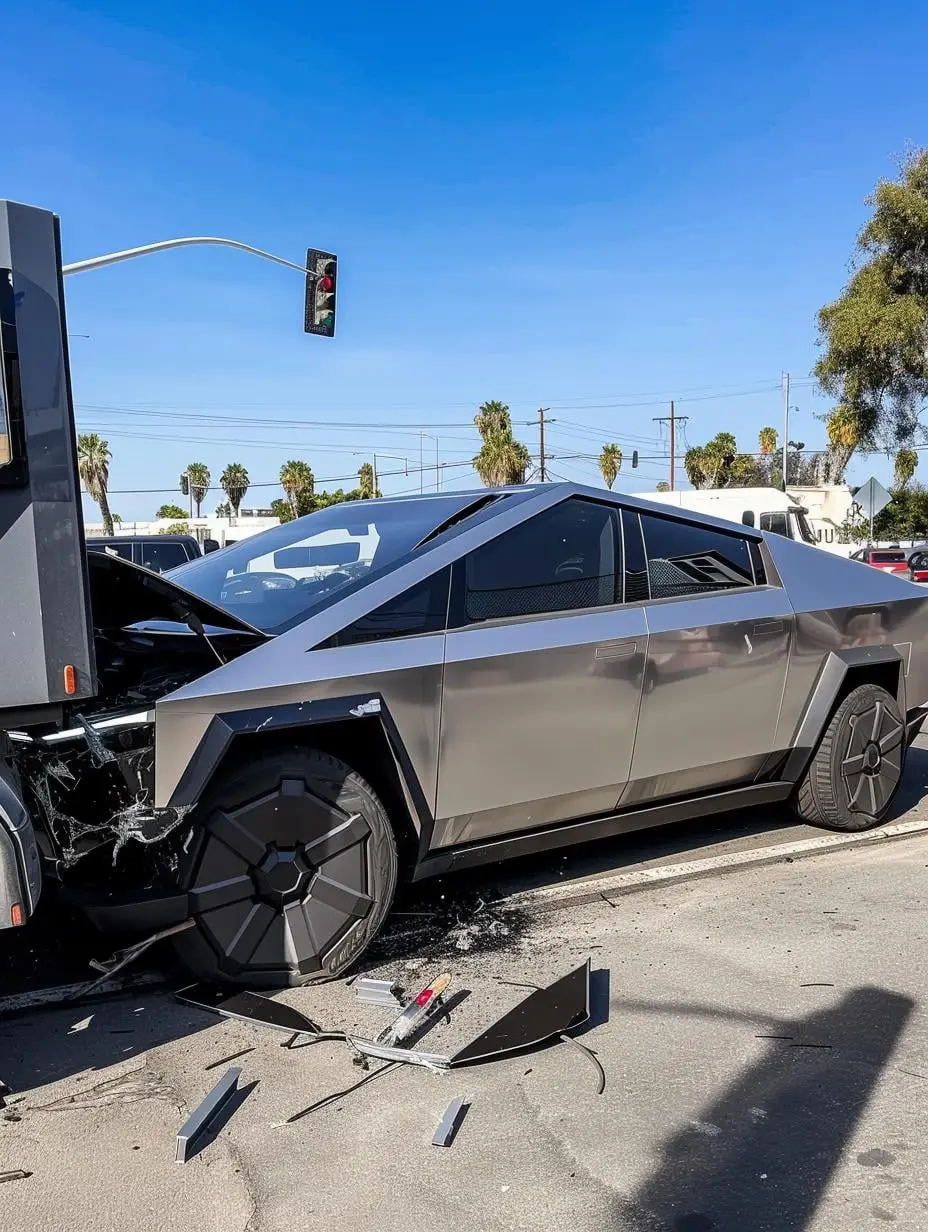
Does not work with the cybertruck.
That’s because you did it wrong. You have to do the Roman salute.
Like this?

I don’t know if this is because this specific picture, but it seems to me that the windshield has a broken off piece, is it not laminated? Laminated windhsields should crack, but not separate into different pieces, right?
That’s just one data point. We need a few hundred teslas flipped to make any sense of this.
I do the same when looking at my checking account.
This photo is a perfect example of why blue LEDs are shitty.
Stop using bight-as-fuck blue LEDs piercing my retinas in the dumbest places.
The most energy efficient kind of light emitting semiconductor junction is the one that emits blue light.
This being a battery bank and assuming that 2x7 segment LED display is always ON, maybe the choice of color for it was driven by that (and price, since that numerical display is far cheaper than even lower power solutions like e-ink) above usability.
Exactly, blue LEDs are cheaper. So, shove them in everything, even if another color or no light at all makes more sense.
Not cheaper in general, just cheaper compared to equal or more energy efficient solutions.
Red LEDs are cheaper but less energy efficient, whilst more energy efficient solutions like e-Ink are much more expensive and suffer from the problem that they need external lighting to read because e-Ink dots are passive, not emissive.
Mind you, it’s possible to come up with solutions with Red LEDs where their slightly higher consumption is no big deal (for example, a button that need to be pressed to activate the charge-left display, so the LEDs are OFF most of the time rather than ON all the time, so ultimatelly use almost no energy because they’re usually off) but they tend to add cost (“no button” is cheaper than having a button) and increase the likelihood of failure or manufacturing defects (adding any kind of mechanical moving part to something which otherwise has no mecanical moving parts adds another, more risky class of failure modes).
In summary, using blue LEDs tends to be the Engineering-optimal solution for these devices, though not the usability-optimal one.
Blue LEDs were a technological breakthrough that took decades of work to create and enabled pretty much all modern tech.
Blue LEDs are great for when you need something blue in particular, but the color is piercing and way too bright. Then they are used as the default without any consideration for any other color.
They are shitty in how they are used, rather than their individual abilities and functions.
The brightness is too bright, not the color. The brightness is always a choice by the manufacturer they could easily make it dimmer using the exact same components.
You literally can’t make white LEDs without them. That includes all flat-screen display technology. After the development of blue and green LEDs, decades and untold money were spent trying to develop blue LEDs.
The device you’re reading this message on is only possible because of Blue LEDs.
Your issue isn’t with the blue LEDs - it’s with the atmosphere, which absorbs red and green light more quickly than blue. It’s why the sky appears blue. it’s also why white LEDs bulbs will often have a yellow filter on them to absorb some of the blue light. Because pure white appears blue-ish in hue.
Without blue LEDs we wouldn’t have LED lighting
That doesn’t change the fact they are used in situations where they shouldn’t. I don’t like being blinded by a bright piercing blue light all the time.
White LED is blue LED with a facemask
All the “whites” (warm white, natural white, cold white and so on) on led lights are combinations of red + blue light emitting junctions covered in a phosporous mask to “smooth” the spectrum distribution of the resulting light (otherwise the light would be purelly a peak at a very specific wavelength on the red part of the spectrum and a similar peak on the blue part of the spectrum).
Who down votes a shit post? I mean, it’s supposed to be kinda dumb, right?
Tried this trick. Almost immediately lost 40% of my charge capacity. Would not attempt again.
Merely as a middle step, it still goes down to 55, but then it improves dramatically. I think it even becomes sentient and friendly. After a few hours, it says “hi”
genius




